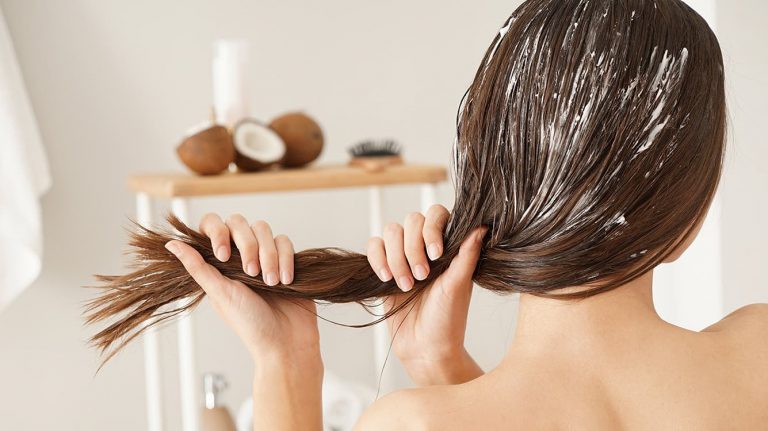Sleep Tips for Better Health: Enhancing Your Sleep Quality and Well-being.
Sleep Tips for Better Health.
Sleep plays a crucial role in maintaining our overall health and well-being. Yet, in today’s fast-paced and demanding world, getting a good night’s sleep has become increasingly challenging for many individuals. The consequences of sleep deprivation can be far-reaching, affecting not only our physical health but also our mental and emotional well-being. In this article, we will explore various sleep tips and strategies that can help improve the quality and duration of your sleep, ultimately leading to better health outcomes.
Research has shown that lack of adequate sleep can have detrimental effects on our bodies. It weakens our immune system, making us more susceptible to illnesses and infections. Chronic sleep deprivation has been linked to an increased risk of developing conditions such as obesity, diabetes, cardiovascular diseases, and even certain types of cancer. Moreover, it impairs cognitive function, memory retention, and decision-making abilities, hindering our productivity and overall performance.
One of the key factors that contribute to a good night’s sleep is maintaining a consistent sleep schedule. Establishing a regular sleep routine, where you go to bed and wake up at the same time every day, helps regulate your body’s internal clock. This allows your body to anticipate and prepare for sleep, making it easier to fall asleep and wake up refreshed. Avoiding naps during the day and creating a calm and comfortable sleep environment can also promote better sleep quality.
Another important aspect to consider is the impact of electronic devices on our sleep patterns. The blue light emitted by smartphones, tablets, and computers can disrupt our natural sleep-wake cycle, making it harder to fall asleep. It is advisable to limit screen time before bed and create a technology-free zone in the bedroom. Instead, engaging in relaxing activities such as reading a book, taking a warm bath, or practicing meditation can help signal your body that it’s time to unwind and prepare for sleep.
Additionally, paying attention to your diet and exercise habits can greatly influence your sleep quality. Consuming heavy meals, caffeine, or alcohol close to bedtime can interfere with your ability to fall asleep and maintain a deep sleep throughout the night. On the other hand, regular physical activity during the day can promote better sleep, as it helps release tension and improves overall sleep efficiency. However, it is important to avoid vigorous exercise too close to bedtime, as it can increase alertness and make it harder to wind down.
In conclusion, prioritizing and improving our sleep patterns is essential for better health and well-being. By implementing simple yet effective sleep tips, such as maintaining a consistent sleep schedule, creating a sleep-friendly environment, limiting screen time, and adopting healthy lifestyle habits, we can optimize our sleep and reap the numerous benefits it offers. So, let’s make sleep a priority and embark on a journey towards better sleep and better health.
Understanding the Importance of Quality Sleep
Getting enough high-quality sleep is essential for our overall health and well-being. Sleep is a complex process that allows our bodies and minds to rest, recharge, and repair. It is during sleep that our bodies perform vital functions such as tissue growth and repair, hormone regulation, and memory consolidation. Inadequate sleep can have a profound impact on our physical, mental, and emotional health. Let’s explore some key sleep tips for better health.
1. Stick to a Consistent Sleep Schedule
Our bodies thrive on routine, and sleep is no exception. Going to bed and waking up at the same time every day, even on weekends, helps regulate our body’s internal clock. This consistency reinforces our sleep-wake cycle, making it easier to fall asleep and wake up feeling refreshed. Aim for a consistent sleep schedule that allows for the recommended 7-9 hours of sleep for adults.
2. Create a Sleep-Friendly Environment
Your sleep environment plays a significant role in the quality of your sleep. Make sure your bedroom is cool, dark, and quiet. Consider using earplugs, eye masks, or white noise machines to block out any disruptive sounds or lights. Invest in a comfortable mattress, pillows, and bedding that support your body and promote a restful sleep experience.
3. Limit Exposure to Electronic Devices
The blue light emitted by electronic devices such as smartphones, tablets, and computers can interfere with our sleep patterns. The blue light suppresses the production of melatonin, the hormone that regulates sleep. To promote better sleep, avoid using electronic devices at least an hour before bedtime. Instead, engage in relaxing activities such as reading a book or practicing relaxation techniques.
4. Establish a Bedtime Routine
Creating a calming bedtime routine can signal to your body that it’s time to wind down and prepare for sleep. Engage in activities that help you relax, such as taking a warm bath, practicing deep breathing exercises, or listening to soothing music. Avoid stimulating activities or discussions that can increase stress levels and make it harder to fall asleep.
5. Watch Your Diet and Hydration
What you eat and drink can impact your sleep quality. Avoid consuming heavy meals, caffeine, or alcohol close to bedtime, as they can interfere with your ability to fall asleep and maintain a deep sleep throughout the night. Instead, opt for light, nutritious snacks and herbal teas that promote relaxation. Stay hydrated throughout the day, but be mindful of reducing fluid intake closer to bedtime to minimize disruptions from bathroom visits.
6. Incorporate Regular Physical Activity
Regular exercise is not only beneficial for your physical health but also for your sleep quality. Engaging in moderate-intensity aerobic exercises, such as walking, jogging, or cycling, can help reduce stress, release tension, and promote better sleep. However, avoid vigorous exercise too close to bedtime, as it can increase alertness and make it harder to fall asleep.
Conclusions
Prioritizing good sleep hygiene is crucial for our overall health and well-being. By implementing these sleep tips, such as sticking to a consistent sleep schedule, creating a sleep-friendly environment, limiting exposure to electronic devices, establishing a bedtime routine, watching your diet and hydration, and incorporating regular physical activity, you can improve the quality and duration of your sleep. Remember, quality sleep is an investment in your health, productivity, and overall happiness. So, make sleep a priority and reap the benefits of a well-rested mind and body.








Hello This website is a treasure trove of health and beauty tips! My skin has never looked better. See you later
Hello I’m impressed with the expert advice on this site. My beauty routine is now flawless. best regards
Yo Fantastic blend of health, beauty, and wellness content. I’ve recommended it to all my friends. Have a good day
What’s up? Fantastic blend of health, beauty, and wellness content. I’ve recommended it to all my friends. Until next time
How are you? The beauty hacks on this site are genius. I’ve saved so much money on products! Bye
Hi This site has transformed my skincare routine. The recommendations are top-notch. Have a good day
Greetings Wonderful health and beauty advice that’s easy to incorporate into daily life. Farewell
How’s everything? “Health is not just about what you’re eating. It’s also about what you’re thinking and saying.” – Anonymous Have a good one
Greetings “Beauty is power; a smile is its sword.” – John Ray Bye
How are things? The wellness tips have improved my sleep and reduced my stress levels significantly. Catch you later